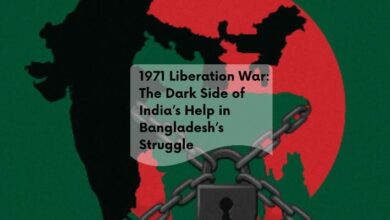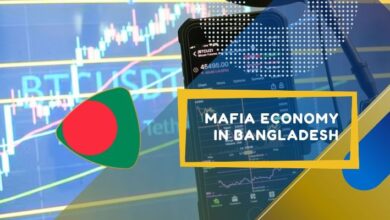Will the Police Remain Puppets of Power in Bangladesh?
Will the Police Remain Puppets of the Powerful? – The Struggle for Independent and Accountable Law Enforcement in Bangladesh

Will the Police Remain Puppets of the Powerful? – The Struggle for Independent and Accountable Law Enforcement in Bangladesh
The police should never act as puppets in the hands of the powerful. Their main duty is to enforce the law, ensure public safety, and prevent crime and disorder. These responsibilities must rest on independence and fairness. However, political influence and power often question the police’s neutrality, creating a deep crisis in trust.
The Historical Context of Bengali National Movements
Bengalis have always been a movement-loving people. History shows that they have repeatedly shaped their destiny through protests. These movements brought independence, saved the language, and fought for democracy. Yet, their struggles were not limited to political freedom—they influenced daily life, social systems, and administrative structures.
During British rule, mass movements even forced the British to shift India’s capital from Kolkata to Delhi. Kolkata, then Bengal’s heart, soon faced economic decline. Once a wealthy region, Bengal gradually sank into poverty. After the 1947 Partition, Bengalis suffered another division—East Bengal became East Pakistan, while West Bengal stayed with India. Still, their movements continued. Protest became a way to assert identity. The culture of marches, slogans, and gatherings reflected the people’s spirit. West Bengal’s political slogans and strategies often influenced Bangladesh, especially until the 1970s.
The Police and the Reality of Repression
In Bengal’s political history, conflict between protesters and police has always existed. Protests often lead to road blockades, stone-throwing, and police clashes. Although the police’s duty is to maintain order, their actions often turn into suppression.
During the colonial era, protesters in Kolkata created the slogan: “Police, beat us as much as you want—your pay is still one hundred and twelve.” That slogan later crossed borders and appeared in Dhaka. Students used it again during the Safe Roads Movement, expressing a clear message: police violence cannot silence protest. People believed that no matter how much police beat them; their condition would not change because they acted as the government’s enforcers.
In Bangladesh, using police to suppress movements is nothing new. Every government, regardless of party, has used the police to crush dissent. The same police once injured Sadeque Hossain Khoka and later beat Matia Chowdhury on the streets. Over five decades, people have come to fear the police. A popular saying now goes: “If a tiger touches you, it’s eighteen wounds; if the police touch you, it’s thirty-six.” In short, once you get entangled with the police, your suffering never ends.
The Political Use of Police
Every ruling party has used the police as a tool of control. Sometimes, party thugs attack protesters under police protection; other times, the police attack directly. These patterns reveal a structural crisis. The problem lies not only within the police but also within political leadership that exploits them. Over time, the police have become victims of political manipulation.
Why the Police Should Not Be Puppets of the Powerful
- Freedom to Enforce the Law: Police must enforce the law equally for everyone. Political control destroys fairness.
- Public Safety and Order: Police exist to protect citizens and maintain peace. They cannot serve any special group’s interests.
- Neutrality and Credibility: If power controls the police, people lose trust. Without neutrality, police lose authority and effectiveness.
The Causes and Challenges
- Political Influence: Politicians and powerful elites often use police for personal or party interests, weakening their independence.
- Corruption: Abuse of power and internal corruption reduce professionalism and moral integrity.
- Legal and Institutional Weakness: Weak laws and administrative flaws often prevent police from acting independently.
The Way Forward
- Legal Reform: Reforms must ensure that police can act freely and effectively under the law.
- Independent and Accountable Institutions: Establish an autonomous police commission to make the force accountable to the people, not politicians.
- Public Awareness and Participation: When citizens stay aware and engaged, they hold the police accountable and strengthen democracy.
Final Words
Bengali history proves that people never stay silent against injustice. Yet if the police remain tools of repression, the gap between them and the public will widen. Trust will only return when the police truly fight crime and uphold justice.
Now the question stands—do we want a people’s police or a ruler’s police? History shows that protests will never stop, voices will always rise. Therefore, Bangladesh must transform its police from instruments of power into true friends of the people.






